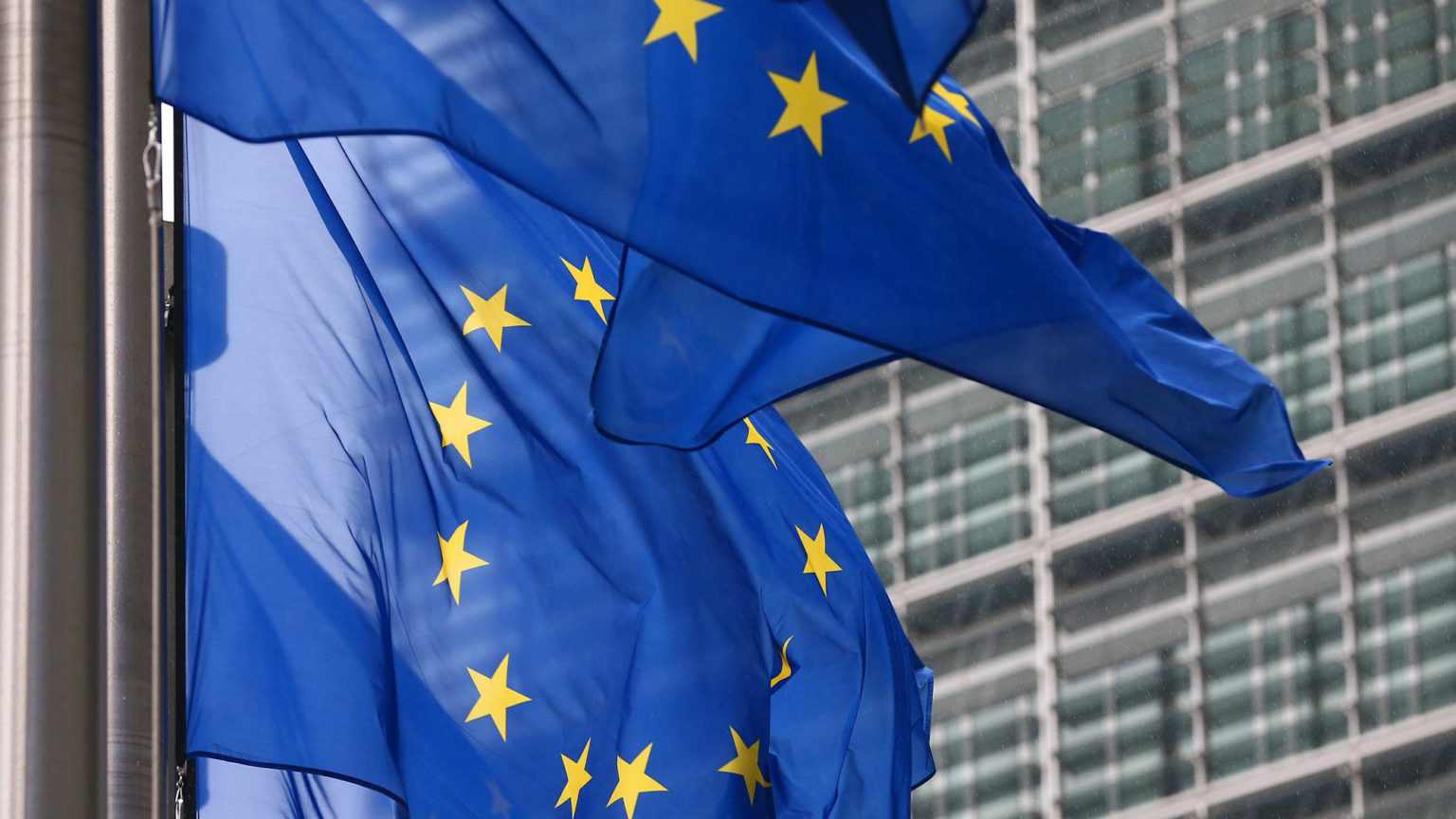Why no one is celebrating 10 years of the Lisbon Treaty
The Lisbon debacle reminds us of how fundamentally anti-democratic the EU is.

The EU marked a significant anniversary on Sunday. But apart from a small private ceremony of EU officials – coinciding with the official coronation of Ursula von der Leyen and her new team of commissioners – few people noticed, let alone celebrated. There were no street parties or champagne corks popped. There was barely even any press coverage.
This was the 10-year anniversary of the Lisbon Treaty – the treaty that gave force to the EU as it exists today. You might think this would be an occasion for misty-eyed, flag-waving Remoaners to commemorate. But the circumstances that led to Lisbon are an embarrassment to Europhiles – or certainly should be. The period that led to Lisbon is a clear and unavoidable reminder of the EU’s fundamentally anti-democratic nature.
The Lisbon Treaty began life as the European Constitution. It set out to consolidate Brussels’ power. Among many things, it would establish a permanent EU Council presidency and a ‘legal personality’ for the EU. It would also confer more powers to the EU on foreign policy. Ten member-state governments announced that they would hold referendums to ratify the constitution. In the end, only four were held. In 2005, the constitution was decisively rejected in France by 55 per cent of voters and then in the Netherlands by 62 per cent of voters.
That ought to have been the end of the road for the constitution. The public of one of the EU’s major powers had called a halt to further EU integration. But even before France held its referendum, the consequences of a No vote were made clear. Jean-Claude Juncker – currently the outgoing head of the EU Commission, but head of the EU Council at the time – made clear to voters that their views were irrelevant to the EU: ‘If it’s a Yes, we will say “on we go”, and if it’s a No we will say “we continue”.’ After the French result came in, Juncker pretended that the outcome was somehow unclear: ‘I am still very much in doubt when I look at this very mixed response in France.’
Instead of parking the planned changes, the European Council decided to have a two-year ‘period of reflection’. In those two years, it set about repackaging the rejected constitution as the Lisbon Treaty.
Few even tried to hide the ruse. German chancellor Angela Merkel said in a speech to the European Parliament: ‘The substance of the constitution is preserved. That is a fact.’ Former French president Valéry Giscard d’Estaing, who was president of the committee drafting the constitution, concurred with this assessment: ‘The proposals in the original constitutional treaty are practically unchanged. They have simply been dispersed through old treaties in the form of amendments.’
There were, however, some subtle changes which, importantly for the EU elites, could ‘head off any threat of referenda by avoiding any form of constitutional vocabulary’, wrote Giscard d’Estaing. Marvelling at the new text, he noted how ‘the Brussels institutions have also cleverly reclaimed the process from the – to them – unwelcome intrusion of parliamentarians and politicians… The [EU] institutions have re-imposed their language and their procedures – taking us even further away from ordinary citizens.’
In the UK, the Labour government had promised a referendum on the EU Constitution in its 2005 manifesto. A planned vote was cancelled after the French and Dutch ‘No’ votes. When the Lisbon Treaty came around, the government refused to allow the public a say on it, even though it was undeniably the same as the constitution. Gordon Brown was clearly embarrassed by the debacle. He first sent his foreign secretary, David Miliband, to sign it in his place so that he wouldn’t be photographed signing it with the 26 other European leaders. He eventually turned up three hours later to sign it.
Ireland was the only member state to hold a referendum on the treaty – and only then because its constitution obliges it to. Seven years earlier in 2001, Ireland held a vote on the EU’s Nice Treaty. The public rejected it by 53 per cent, and a year later the referendum was held a second time. In 2008, the Irish rejected the Lisbon Treaty. When the inevitable second referendum came around a year later, an obscure left-wing British backbencher went to Ireland to campaign against the treaty. Jeremy Corbyn warned that the EU was creating a ‘European empire’ and a ‘military Frankenstein’. Corbyn joked that No campaigners should not ‘scrap your posters because you’re gonna need them for a third referendum’. Now, of course, Corbyn’s Labour and its Europhile activists are campaigning to overturn the vote for Brexit with a second referendum.
France, Ireland and the Netherlands had rejected EU integration but it was to happen anyway. It is also worth remembering that they rejected the EU when it was enjoying relatively good times. In recent years the EU has faced multiple major crises of its own making, from Brexit and the rise of populism to the Euro crisis and the migrant crisis. But the people of Europe were saying ‘No’ to the EU in vast numbers even before any of this.
The only positive of the Lisbon Treaty is a clause of around 260 words that was never intended to be used: Article 50, which for the first time established the right of EU member states to leave. Now that really will be worth celebrating – if it’s ever allowed to happen.
Fraser Myers is a staff writer at spiked and host of the spiked podcast. Follow him on Twitter: @FraserMyers.
Picture by: Getty
To enquire about republishing spiked’s content, a right to reply or to request a correction, please contact the managing editor, Viv Regan.











Comments
Want to join the conversation?
Only spiked supporters and patrons, who donate regularly to us, can comment on our articles.